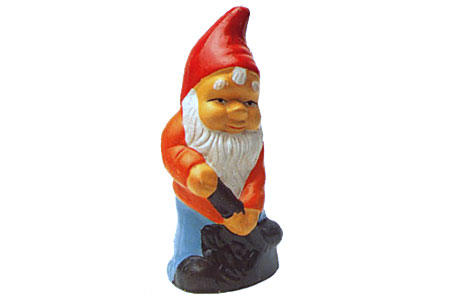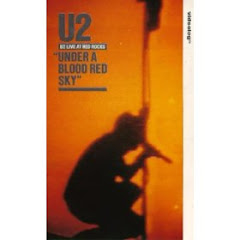Father's Day is always kind of a strange day for me. Growing up, my dad was not really in the picture. He'd call on my birthday, and on Christmas I'd get a card with a hundred-dollar bill in it. Apart from that he was more like a benevolent uncle who occasionally and unexpectedly drops by and takes you out for ice cream.
My mother expected to be feted on both Mother's Day and Father's Day. She was doing twice the work, so she thought it was only fair that she got twice the recognition. The Friday before Father's Day, I'd bring whatever home cards and misshapen ashtrays (the last generation of kids who made ashtrays) that we'd made in school. She'd sniff at them and ask if I'd made anything for her. She didn't want me to hate my father, she was just desperate for recognition of how hard it was. I'm not unsympathetic to her struggle to raise a child alone, but there really is no replacement for a father. No matter how good a parent you are, you can never fill that gap. I now recognize how my own behavior reflects my efforts to try to fill it myself; with older boyfriends, with my need for security.
Of course, my experience was hardly isolated. There are almost ten million households with single mothers, a statistic which has remained pretty much constant for the past ten years (Press Release cb98-228.html, U.S. Census Bureau, www.census.gov, April 29, 1999). Many of my friends were in similar positions, and we all had a sense of awkward loss, almost shame, about our fathers.
I spoke to a friend of mine Sunday morning as he was on his way to go fishing with his dad. He was reluctant, he felt a lot of pressure around his father and there were other things he'd rather be doing. My first instinct was to chastise him, to tell him he was lucky to have his father to spend the day with, an oblique and self-serving reference to my dead father. But I paused, and realized how unfair that would be. It's unreasonable to undermine the difficulties that he's had with his father by saying, "At least you have one." The absence of a father is no less difficult than a painful relationship with one who was around. I can't imagine the tortured experiences that someone who was abused by a parent would go through. It is a lot easier to damage your kids by being a bad parent when they are growing up than the damage done by mere absence. My friend's dad isn't a cruel man, but they have a troubled realtionship. Father's Day isn't easy for him, either.
When my dad died, the absence of a parent was suddenly legitimized. I no longer had the lingering shame of awkwardly trying to explain where daddy was. Looks of pity were replaced with a respectful sympathy, which I stoically accepted. I excelled at the graceful acnkowledgment of my loss, a different loss than the absent parent, the one I had never learned to deal with. It pains me that in his death I found the excuse I had always been looking for. His death meant I no long had to explain his absence, or even explain that there had been an absence. I relied on his death to legitimize my upbringing because it is no long obvious that it was with only one parent. As time passes, the sense of loss I feel on Father's Day has lessened. My friends have become fathers and mothers, and I see them in an entirely new light. As we've grown up, I've realized that none of us have it easy, and hdozen a father present doesn't mean that you have a Hallmark Father's Day. I guess family relationships aren't easy for any of us.
Like a waterfall in slow motion, Part One
3 years ago



No comments:
Post a Comment